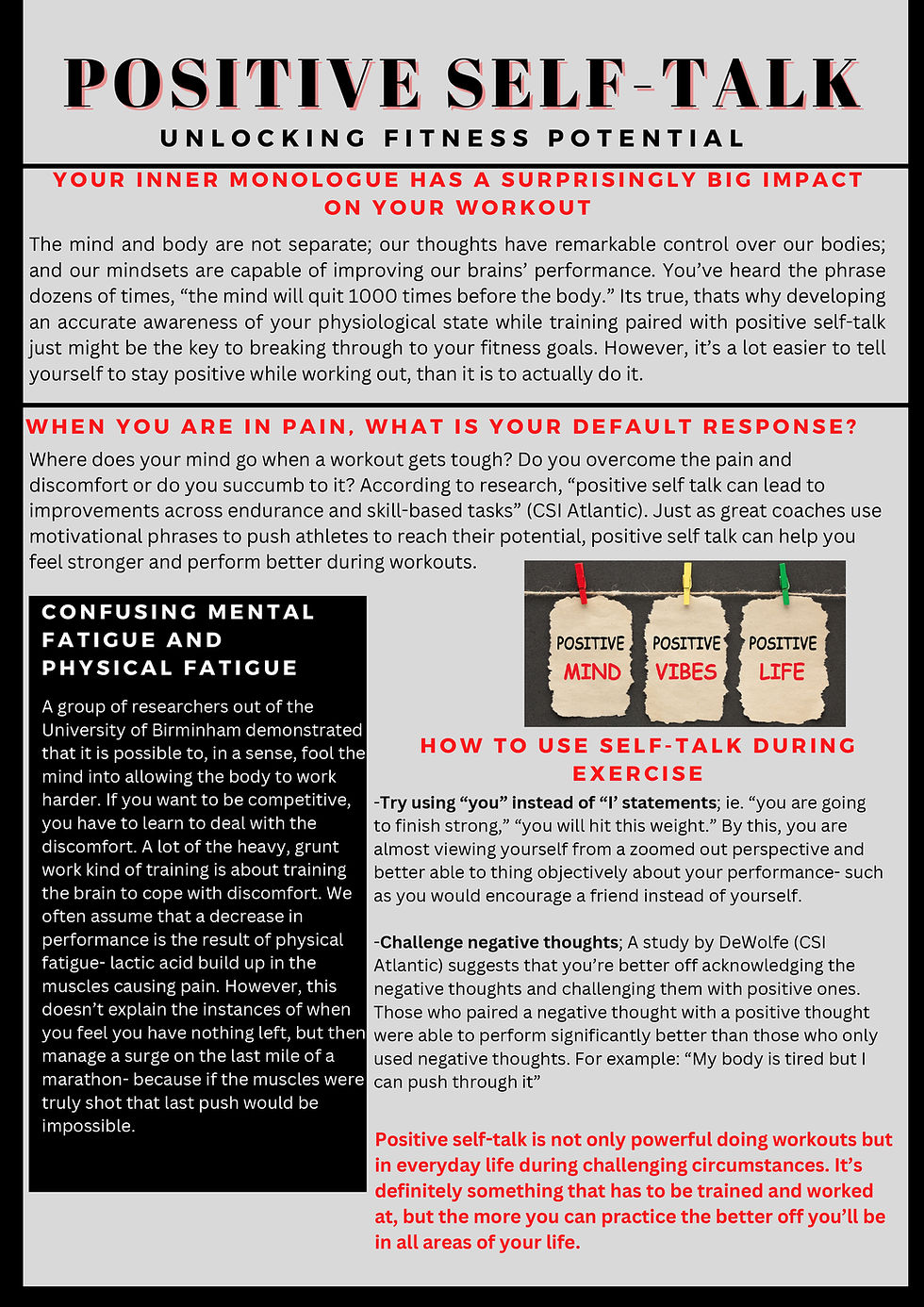Positive Self Talk: Unlocking Fitness Potential
- Katie Gavin

- Jan 29, 2023
- 2 min read

Positive Self Talk During Workouts
Your inner monologue has a surprisingly big impact on your workout.
The mind and body are not separate; our thoughts have remarkable control over our bodies;
and our mindsets are capable of improving our brains’ performance. You’ve heard the phrase
dozens of times, “the mind will quit 1000 times before the body.” Its true, thats why developing an accurate awareness of your physiological state while training paired with positive self-talk just might be the key to breaking through to your fitness goals. However, it’s a lot easier to tell yourself to stay positive while working out, then it is to actually do it.
Where does your mind go when a workout gets tough? Do you overcome the pain and
discomfort or do you succumb to it?According to research, “positive self talk can lead to
improvements across endurance and skill-based tasks” (CSI Atlantic). Just as great coaches
use motivational phrases to push athletes to reach their potential, positive self talk can help you feel stronger and perform better during workouts.
Confusing Mental Fatigue and Physical Fatigue
A group of researchers out of the University of Birminham demonstrated that it is possible to, in a sense, fool the mind into allowing the body to work harder. If you want to be competitive, you have to learn to deal with the discomfort. A lot of the heavy, grunt work kind of training is about training the brain to cope with discomfort. We often assume that a decrease in performance is the result of physical fatigue- lactic acid build up in the muscles causing pain. However, this doesn’t explain the instances of when you feel you have nothing left, but then manage a surge on the last mile of a marathon- because if the muscles were truly shot that last push would be impossible.
How to Use Self-Talk during exercise
-Try using “you” instead of “I’ statements; ie. “you are going to finish strong,” “you will hit this
weight.” By this, you are almost viewing yourself from a zoomed out perspective and better able to thing objectively about your performance- such as you would encourage a friend instead of yourself.
-Challenge negative thoughts; A study by DeWolfe (CSI Atlantic) suggests that you’re better off acknowledging the negative thoughts and challenging them with positive ones. Those who
paired a negative thought with a positive thought were able to perform significantly better than those who only used negative thoughts. For example: “My body is tired but I can push through it”
Positive self-talk is not only powerful doing workouts but in everyday life during challenging
circumstances. It’s definitely something that has to be trained and worked at, but the more you can practice the better off you’ll be in all areas of your life.
Christopher E. J. DeWolfe
Faculty of Kinesiology, University of New Brunswick, Fredericton, Canada
David Scott & Kenneth A. Seaman
Pages 527-540 | Received 18 Sep 2019, Accepted 08 Jul 2020, Accepted author version posted online: 14 Jul 2020, Published online: 11 Aug 2020




Comments